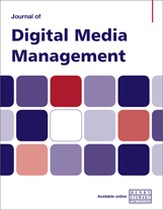Whole-system preservation: The future of records transfers
Abstract
Digital records have traditionally been transferred and subsequently preserved by exporting them from their source systems into individual files. After export, the files must be arranged, described and ingested into long-term preservation systems. Over time, the content in the files may also have to be migrated into newer formats. These steps are all time-consuming and costly, and as a result can be barriers to transfer. As many organisations cannot afford the cost of this process, there is a clear risk that their records will never be transferred to appropriate archives. There is also a risk that the steps described may alter the records, undermining their value as evidence and introducing issues of trust for the organisations involved. This paper discusses how recent work to develop the ability to emulate the servers and client computers needed to run large enterprise systems and keep them available on demand is providing a new option for addressing these challenges. With this new technology, organisations can leave records in their source systems and transfer working copies of entire systems to appropriate archives for long-term preservation. Leaving records in place also ensures that the existing documentation in source systems is retained, minimising the need to create additional documentation. The paper also discusses emerging technology that allows for the recording and re-execution of common processes within the preserved systems so that tasks such as finding and printing or exporting records can be semi-automated, further reducing long-term management costs.
The full article is available to subscribers to the journal.
Author's Biography
Klaus Rechert is a professor at the University of Applied Sciences Kehl. His research focuses on the functional preservation of scientific and administrative processes, privacy protection in the context of complex data, and digital forensics. He has led multiple national and international projects related to digital preservation, reproducible science and research data management. He studied computer science and economics at the University of Freiburg and received a diploma from the University of Freiburg in 2005. He holds a doctoral degree from the University of Freiburg.
Euan Cochrane is an information management and long-term digital preservation practitioner with experience in the public, private and non-profit sectors. Euan leads Yale University’s Library’s digital preservation team, providing digital preservation infrastructure and services across Yale University’s libraries, archives and museums. Euan also has a long history with and passion for emulation and software preservation, and leads a number of projects to ensure historic software is preserved and made accessible for future generations.
